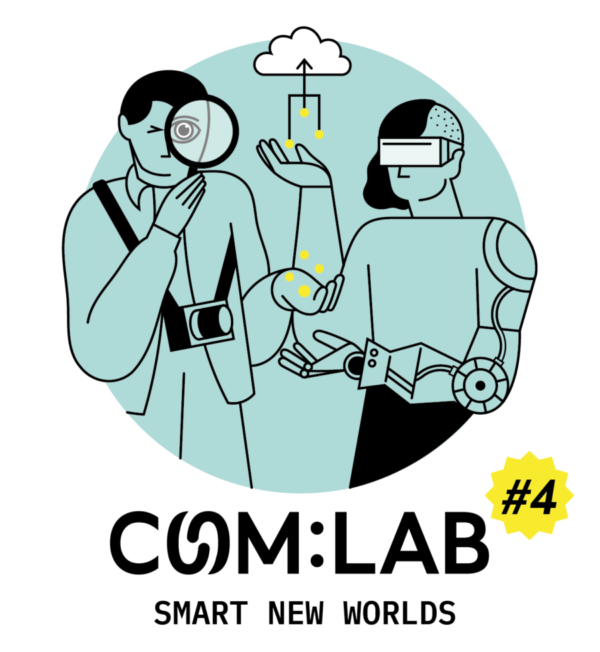ComLab#4: Smart New Worlds How AI, Robotics and Digitalisation Transform our Lives

Artificial intelligence, robotics and new digital technologies are changing our lives. To which extent, benefit or at which cost is often hard to grasp for regulators, civil society and media. While transformative technologies hold great potential in medicine, industry, logistics and urban planning, hardly any other scientific fields spark so much speculation. From automated mobility to biorobots and intelligent implants: The relationship between humans and machines is full of promise, but is also marked by misunderstanding and ignorance.
Together, journalists and researchers can point out research trends and development trajectories of AI, robotics and digital innovations, assess designs and possible applications, and discuss their ethical implications. And this is not an easy task since the expectations of future technologies are high. They should have an innovative and effective impact on society and equally benefit the common good. The social complexity raises important questions:
- Have diversity and participation been sufficiently considered in technological developments, especially in the areas of medicine, public health and connected living?
- What will digital human rights look like in the future?
- And how must the digital transformation be designed to counteract a monopolisation of knowledge and global inequality?
Award-winning contributions
In March 2022, the winners of the fourth round of ComLab were announced at an online awards ceremony.
The jury – consisting of Ulrike Winkelmann (editor-in-chief of taz newspaper), Alok Jha (scientist correspondent for The Economist), Jens Radü (managing editor for multimedia at the news magazine DER SPIEGEL) and Georg Scholl (head of the Press, Communications and Marketing division at the Humboldt Foundation) – found it hard to reach a decision. The diversity of the topics tackled during the Communication Lab – which extended from the employment of micro robots in reproductive medicine to the uses of AI in architecture all the way to the subject of data expertise – is testimony to the wide range of new technologies and their potential uses.
The four selected projects convinced the jury through the originality of the respective topic and the chosen media, their appealing combination of scientific facts and storytelling, and the coherent way they addressed their target group.
Prize Winners
The cash prizes for the four best submissions went to:
- The journalist Alexandra Eul and the app developer Priya Goswami for their three-part article series “Technology Will (Not) Fix This” about female entrepreneurs and researchers who use new technologies like AI to combat gender-based violence. (published at taz newspaper on June 2, 2022).
- The journalist Wella Andany and the organisational and technology researcher Teng Teng (Technical University of Munich, TUM) for their multimedia report „Competing Against Smart Machines“ about the situation of Indonesian workers in an increasingly automated world. (an English manuscript can be found here)
- The journalist Silvia Plahl and the computer scientist Dr Henrique Fernandes (Federal University of Uberlandia) for their podcast and accompanying Instagram story “Breast Thermography – Can AI Help to Detect Cancer?” and the panel discussion “Cafe com Bit” about the potential of AI-based methods to detect breast cancer.
The Special Award went to the journalist Fabian Franke and the robotics engineer Dr Robert Siddall (University of Surrey) for the journalistic feature “Build Nature from Scratch” and the robot competition “The Natural Robotics Contest” – a project that explains how robotics can be applied to study ecosystems while using interactive elements to encourage others to join in.
The winning entries are available on the AvH site.

